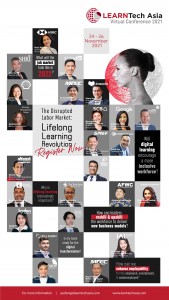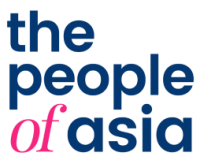Calculating that the average school years until college makes up to 16 years, while on average people live for 78 years, then education takes up about 20% of our lives. That’s quite a chunk of years spent in school. Maybe it won’t seem much compared to the 80% of our lives, but those 16 years take up the initial years of our lives where we start to understand things beyond what a baby or toddler could.
School can be considered as the best years of our lives where we are free from adult responsibilities. We were just young, have so much energy (and anxiety) but free of such responsibilities. Of course, not everyone was as fortunate. But for those who are, including me… How was your school years?
For me, I just wish I had made a ‘game plan’ before I start my school (in my case, university).
Up until high school, I let my parents chose the school for me. The nearer to the house the better. But when it comes to university, my parents let me choose for myself. Like a typical teenager who was confused and just “wants to have fun”, I asked my friends about their choice and trusted “whispers”. Because at the time, all I could think about was how I am going to fit in? Are the people welcoming enough? Is it a school where most popular kids go? How’s the school reputation?
When I actually entered the school, I realized that all my worries (which became my standards for the new school) only covered the very surface of what I need. There was the curriculum, the teachers’ quality, competitiveness compared to other schools, facilities, administration and many more. I didn’t research the schools for what I actually need that I end up passing the whole college years complaining and not knowing the real potential my school has at the same time.
My campus provided its students with a lot of activities to discover their potentials. There were so many choices of organisations, clubs and events to join. But back then, I thought about organisations and committee as voluntary work (which is partly true, since we didn’t get paid). I just thought it would be fun to be busy and tired and have a bunch of arguments with my friends. Also, a platform where I can make more friends.
I didn’t know until my time for job interview came how important this ‘voluntary work’ is. When you have zero work experience, organisational and committee work matters. It was a free platform where I could practise professional skills and make mistakes that wouldn’t cause… well, serious problems (if compared to company mistakes). If I’d known, I probably would have done a much less lousy work on it and be more dedicated.
Competition was also an integral part of the whole education environment. I always thought about competitions as scary and people who compete as ‘too ambitious’, while those who actually win I perceive as the 1% of the student population. I clearly wasn’t part of the 1 per cent, was I? Or maybe, I wouldn’t have been… right?
No one knows because I never paid attention to any competition, never showed any interest to even join one. What I didn’t know then was that there’s more to competition than winning. It’s called survival instinct.
Sounds funny, I know, it’s like every competition is Hunger Games (well, some people think about it that way). Competition sharpens the participants’ survival instinct. In order to win, you have to survive, right? Ideally, a fair game is won not by eliminating others, but by standing out from the others. I realized just now how much I could use more survival skills because life turns out to be tougher than I thought.
What could have been added more to my survival instinct is network. I just wish I had built a good relationship with my teachers and lecturers. Back then, I was stuck to the notion that teachers are the ones who have no fun in life and are paid to make our lives miserable. Only now I realized how primitive that stereotype is.
Teachers are there to teach us something we don’t know. And sometimes it’s beyond the curriculum. They are usually older than us (not all college students start right after high school, you know) and they have dealt with a lot of things we have yet to meet. Besides, teachers could be a valuable network. Since teachers usually have a close-knit academic circle, they can tip you on the newest scholarship program, the latest competition, or even an internship opening at the campus.
Even if you’re an awkward person and don’t like networking, befriending with teachers is the least of efforts. Teachers are (ideally) paid to pay attention to the students. So, it is their job to help you.
However, even if I didn’t know all the things above, I wish I’d realized this one: responsibilities.
How we wish we could escape that. Our lives would feel so much better.
The ugly truth is, we can’t. We will always be demanded with responsibilities as long as we live. It’s how we deal with it that will make a difference.
In careers, we can’t remain staff forever. There should be a time when we become a supervisor, a manager, a director and even a boss. But how are we going to fill those positions if we have no leadership experience? What’s at stake is different when you make the wrong decision at work and at a college event. Basically, it’s a different responsibility when you get paid and you don’t get paid for what you do.
College activities actually give me a chance to take on a leadership role. But naturally, I was always the one who prefers to follow others and be loose of the decision-making burden. That’s why I never aimed for a leadership position and even refused one when offered!
I wish I’d known those things when I was at school. Turns out, life is more than just grades and fitting in.





















